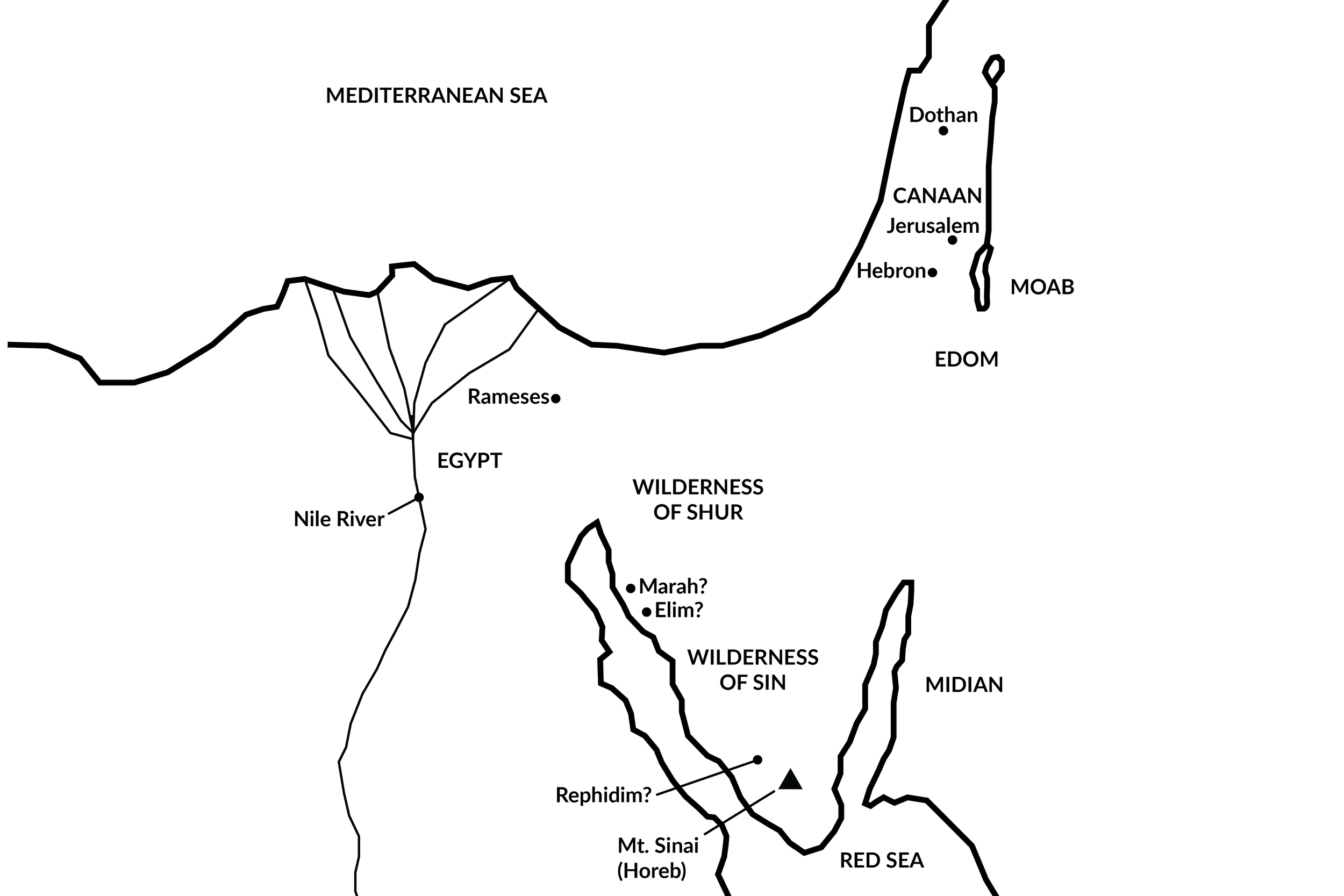Exodus 18 Summary: A Concise Overview in 5 Minutes
Exodus 18 Summary - A Quick Overview
WHEN:
God delivered the Israelites from slavery in approximately 1491 B.C.
The events in Exodus 16 occurred 1 month after the Exodus (16:1). The events of Exodus 18 took place within the 2nd or 3rd month after the Hebrews left Egypt (19:1).
CHARACTERS:
Israelites (Hebrews) – They were the descendants of Abraham, Isaac, and Jacob and they grew into a great nation of people during their time in Egypt.
Moses – A Hebrew who grew up in the house of Pharaoh. He fled Egypt in Exodus 2 and went to live in Midian. God called him back to Egypt to deliver the Israelites from slavery.
Jethro – The priest of Midian and Moses’ father-in-law.
WHERE:
In chapter 17, the Israelites left the wilderness of Sin and camped in Rephidim (17:1).
They remained in Rephidim until they went to Mount Sinai (19:1).
OUTLINE:
JETHRO VISITS MOSES (18:1-12):
Moses’ father-in-law came to visit Moses in the wilderness and brought Moses’ wife, Zipporah, and his two sons, Gershom and Eliezer.
Moses went out to meet Jethro, bowed down before him, and kissed him.
Moses recounted all that God had done in Egypt and how He delivered His people from Pharaoh.
Jethro praised God and brought “a burnt offering and sacrifices” to worship.
He said, “Now I know that the Lord is greater than all gods.”
JETHRO’S ADVICE TO MOSES (18:13-27):
The next day, Moses returned to his usual daily routine of advising and judging the people.
From morning till evening, the people came to Moses to ask for direction from God or to settle disputes.
Jethro told Moses it wasn’t wise for him to busy himself 24/7 with all the small problems in the camp of Israel.
Jethro said the job was too much for one man to handle and if Moses continued he would certainly burn himself out.
Jethro advised Moses to delegate the work.
Moses would represent the people to the Lord, handle all the big problems, and teach the laws of God to the Israelites.
Trustworthy men would be selected to handle smaller problems. These men would oversee groups of thousands, hundreds, fifties, and tens.
Moses listened to his father-in-law’s advice and selected quality men to judge the people.
Afterwards, Jethro departed and returned to his country.
APPLICATION:
Great men don’t dismiss wise counsel.
There is no doubt Moses was a great man.
“Moreover, the man Moses was very great in the land of Egypt, in the sight of Pharaoh's servants and in the sight of the people” (11:3).
That said, he wasn’t too proud to hear advise and to implement good advice when he received it.
If you ever find yourself in a position of authority, mimic Moses’ humility.


